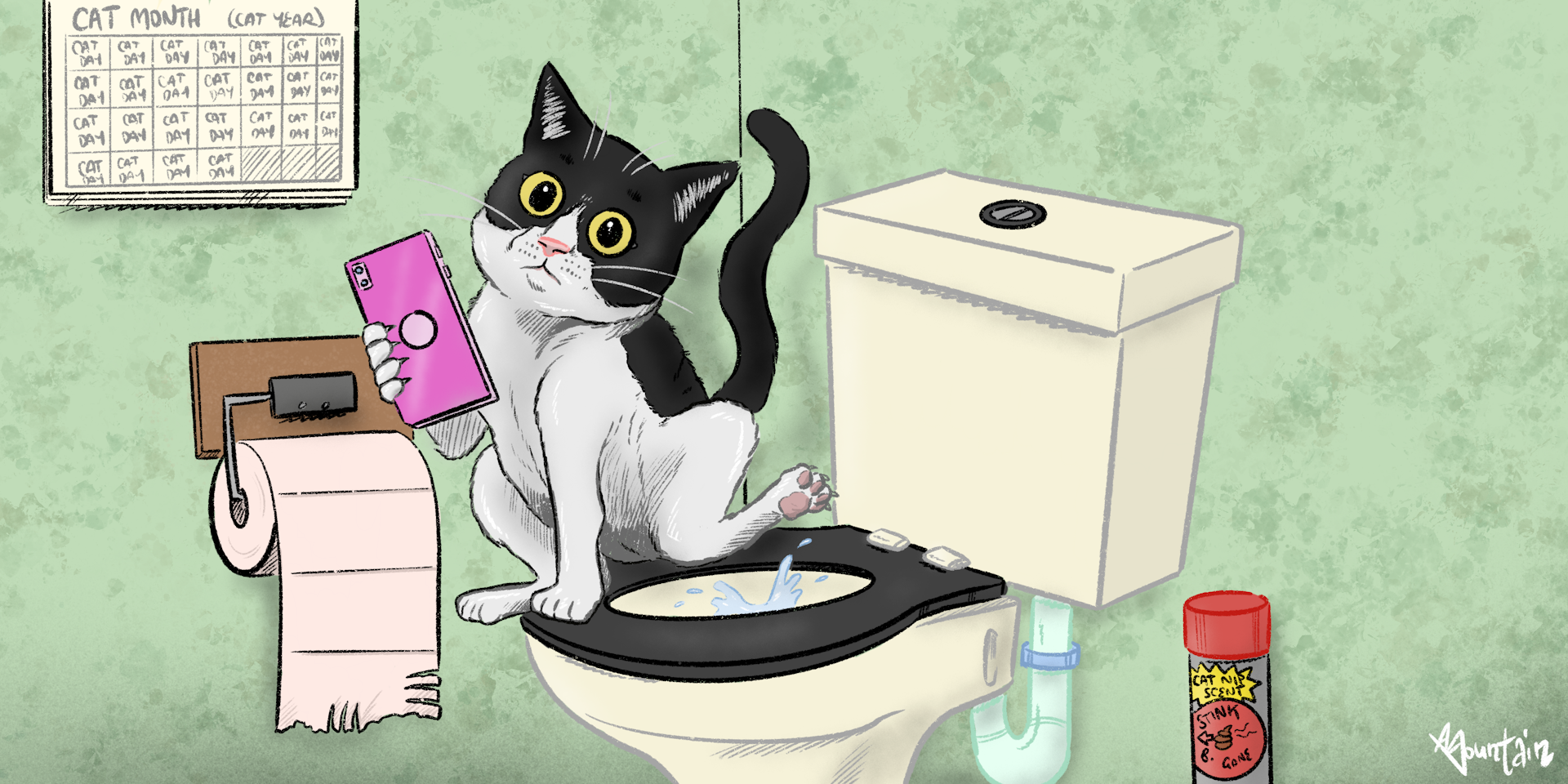Avoid Clogs and Damage: Don't Flush Cat Poop Down Your Toilet - Expert Insights
Avoid Clogs and Damage: Don't Flush Cat Poop Down Your Toilet - Expert Insights
Blog Article
Are you currently trying to locate advise about Don’t flush cat feces down the toilet?

Intro
As pet cat owners, it's vital to be mindful of just how we dispose of our feline friends' waste. While it may appear convenient to flush feline poop down the bathroom, this practice can have detrimental repercussions for both the setting and human health.
Ecological Impact
Purging pet cat poop introduces hazardous microorganisms and bloodsuckers into the water system, presenting a significant threat to water environments. These pollutants can adversely affect marine life and compromise water quality.
Health Risks
Along with ecological worries, flushing feline waste can likewise pose wellness dangers to humans. Pet cat feces may contain Toxoplasma gondii, a bloodsucker that can create toxoplasmosis-- a potentially extreme disease, specifically for expecting females and individuals with weakened immune systems.
Alternatives to Flushing
The good news is, there are safer and more liable methods to dispose of pet cat poop. Think about the complying with options:
1. Scoop and Dispose in Trash
One of the most typical method of getting rid of pet cat poop is to scoop it right into an eco-friendly bag and toss it in the garbage. Make certain to make use of a committed clutter inside story and take care of the waste without delay.
2. Usage Biodegradable Litter
Choose biodegradable cat clutter made from products such as corn or wheat. These litters are eco-friendly and can be securely gotten rid of in the trash.
3. Hide in the Yard
If you have a yard, think about hiding pet cat waste in a marked location far from vegetable yards and water resources. Make sure to dig deep adequate to stop contamination of groundwater.
4. Mount a Pet Waste Disposal System
Buy a pet dog garbage disposal system particularly developed for cat waste. These systems make use of enzymes to break down the waste, minimizing odor and ecological impact.
Conclusion
Liable animal possession prolongs past offering food and sanctuary-- it also entails proper waste administration. By avoiding flushing feline poop down the toilet and choosing different disposal methods, we can reduce our ecological impact and safeguard human wellness.
Why Can’t I Flush Cat Poop?
It Spreads a Parasite
Cats are frequently infected with a parasite called toxoplasma gondii. The parasite causes an infection called toxoplasmosis. It is usually harmless to cats. The parasite only uses cat poop as a host for its eggs. Otherwise, the cat’s immune system usually keeps the infection at low enough levels to maintain its own health. But it does not stop the develop of eggs. These eggs are tiny and surprisingly tough. They may survive for a year before they begin to grow. But that’s the problem.
Our wastewater system is not designed to deal with toxoplasmosis eggs. Instead, most eggs will flush from your toilet into sewers and wastewater management plants. After the sewage is treated for many other harmful things in it, it is typically released into local rivers, lakes, or oceans. Here, the toxoplasmosis eggs can find new hosts, including starfish, crabs, otters, and many other wildlife. For many, this is a significant risk to their health. Toxoplasmosis can also end up infecting water sources that are important for agriculture, which means our deer, pigs, and sheep can get infected too.
Is There Risk to Humans?
There can be a risk to human life from flushing cat poop down the toilet. If you do so, the parasites from your cat’s poop can end up in shellfish, game animals, or livestock. If this meat is then served raw or undercooked, the people who eat it can get sick.
In fact, according to the CDC, 40 million people in the United States are infected with toxoplasma gondii. They get it from exposure to infected seafood, or from some kind of cat poop contamination, like drinking from a stream that is contaminated or touching anything that has come into contact with cat poop. That includes just cleaning a cat litter box.
Most people who get infected with these parasites will not develop any symptoms. However, for pregnant women or for those with compromised immune systems, the parasite can cause severe health problems.
How to Handle Cat Poop
The best way to handle cat poop is actually to clean the box more often. The eggs that the parasite sheds will not become active until one to five days after the cat poops. That means that if you clean daily, you’re much less likely to come into direct contact with infectious eggs.
That said, always dispose of cat poop in the garbage and not down the toilet. Wash your hands before and after you clean the litter box, and bring the bag of poop right outside to your garbage bins.
https://trenchlesssolutionsusa.com/why-cant-i-flush-cat-poop/

We are very interested by How to Dispose of Cat Poop and Litter Without Plastic Bags and I am assuming you appreciated my page. Enjoyed reading our write-up? Please share it. Help somebody else find it. Thank-you for taking the time to read it.
Call Today Report this page